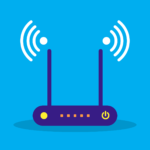
In today’s digital age, where speed and security are paramount, it’s crucial to have a reliable and efficient DNS (Domain Name System) server. DNS servers play a vital role in translating domain names into IP addresses, allowing us to access websites and online services seamlessly. However, not all DNS servers are created equal when it comes to speed and security.
In this blog post, we will explore the importance of speed and security in DNS servers and discuss the best options available. We will delve into the significance of speed in improving browsing experience and reducing latency, as well as the role of security in safeguarding against potential threats and protecting your privacy.
Finding the perfect balance between speed and security can be a challenge, but not an impossible one. We will highlight some of the top DNS servers known for their exceptional performance and robust security measures. From Google Public DNS to OpenDNS, Cloudflare, Quad9, and Comodo Secure DNS, we will analyze their features, benefits, and how they can enhance your internet experience.
But knowing the best DNS servers is only part of the equation. We will also guide you through the process of changing your DNS settings on various platforms, including Windows, Mac, and mobile devices. With easy-to-follow instructions and useful tips, you’ll be able to optimize your DNS settings and reap the benefits of speed and security.
Lastly, we will discuss the importance of maintaining your DNS settings for optimal performance. We’ll explore the significance of regularly updating your DNS, monitoring its performance, and ensuring that security measures are in place to protect yourself from potential vulnerabilities.
By the end of this blog post, you’ll have a clear understanding of the best DNS servers for speed and security, as well as the knowledge to change your DNS settings and maintain them effectively. So let’s dive in and unlock the full potential of your internet experience!
Understanding DNS Servers: Their Role and Importance
DNS servers play a crucial role in the functioning of the internet, serving as the backbone of every online activity we engage in. Understanding their role and importance is essential in grasping the significance of choosing the best DNS servers for speed and security.
At its core, the Domain Name System (DNS) is responsible for translating human-readable domain names (such as www.example.com) into machine-readable IP addresses (such as 192.168.0.1). This translation process allows our devices to connect to the correct servers and retrieve the requested web content.
Imagine you want to visit a website. Instead of typing in the IP address associated with that website, you can simply type in its domain name. Behind the scenes, your device communicates with a DNS server to obtain the IP address linked to that domain name. This process is known as DNS resolution.
DNS servers act as the middlemen between your device and the vast network of servers that host websites and online services. When you enter a domain name in your web browser, your device sends a DNS query to a DNS server, requesting the corresponding IP address. The DNS server then responds with the correct IP address, enabling your device to establish a connection and load the requested web content.
The speed and efficiency of this DNS resolution process can significantly impact your browsing experience. A slow or unreliable DNS server can result in delays, increased latency, and overall sluggishness when accessing websites or online services. On the other hand, a fast and reliable DNS server can enhance your internet experience by reducing latency and providing near-instantaneous responses to DNS queries.
Moreover, the security aspect of DNS servers cannot be overlooked. DNS servers play a crucial role in protecting users from various online threats, such as phishing attacks, malware infections, and unauthorized access to sensitive information. By utilizing secure DNS servers, you can add an extra layer of protection to your online activities and minimize the risk of falling victim to cyber threats.
In summary, DNS servers are fundamental to the functioning of the internet. They translate domain names into IP addresses, enabling our devices to connect to websites and online services. Choosing the right DNS servers for speed and security is essential to ensure a smooth and secure browsing experience. In the following sections, we will delve deeper into the importance of speed and security in DNS servers and explore the best options available.
Speed and Security: Why They Matter in DNS Servers
When it comes to DNS servers, both speed and security play a crucial role in enhancing your internet experience. In this section, we will explore why speed and security matter and how they can significantly impact your DNS server performance.
Why Speed is Essential in DNS Servers
- Improved Browsing Experience: A fast DNS server can reduce the time it takes for your device to resolve domain names into IP addresses. This translates into faster website loading times, smoother browsing, and a more seamless online experience.
- Reduced Latency: Latency refers to the delay between making a request and receiving a response. A slow DNS server can increase latency, resulting in slower connection times and a sluggish browsing experience. By using a DNS server optimized for speed, you can minimize latency and enjoy near-instantaneous responses.
- Faster Content Delivery: Many websites rely on content delivery networks (CDNs) to distribute their content across multiple servers worldwide. CDNs use DNS servers to direct users to the nearest server, reducing the distance data needs to travel. A fast DNS server can efficiently direct your device to the closest server, resulting in faster content delivery and improved performance.
The Role of Security in DNS Servers
- Protection Against Phishing Attacks: DNS servers with robust security measures can help detect and block phishing attempts. These servers can identify and block websites that attempt to deceive users by posing as legitimate entities, protecting you from falling victim to scams and identity theft.
- Malware Mitigation: Secure DNS servers can block access to websites known to distribute malware or engage in malicious activities. By preventing your device from connecting to these harmful sites, you can significantly reduce the risk of malware infections and other cybersecurity threats.
- Privacy Enhancement: Some DNS servers offer additional privacy features, such as DNS over HTTPS (DoH) or DNS over TLS (DoT). These protocols encrypt the DNS traffic between your device and the DNS server, preventing potential eavesdropping and protecting your browsing activity from unauthorized access.
Balancing Speed and Security in DNS Servers
Finding the right balance between speed and security is crucial when selecting a DNS server. While speed is essential for a smooth browsing experience, security should not be compromised. Fortunately, several DNS servers offer a combination of both speed and security features, ensuring you can enjoy fast and secure internet connectivity.
In the next section, we will explore some of the best DNS servers known for their exceptional speed and robust security measures. By understanding the advantages each server offers, you can make an informed decision about which DNS server is best suited for your needs.
Best DNS Servers for Speed and Security
When it comes to choosing the best DNS servers for speed and security, several options stand out in the industry. In this section, we will explore some of the top DNS servers known for their exceptional performance and robust security measures. Let’s dive in and discover the best DNS servers available.
Google Public DNS
Google Public DNS is a widely popular DNS service known for its reliability, speed, and security. It offers fast DNS resolution, helping to reduce latency and improve browsing experience. Google Public DNS also incorporates security features like blocking known malicious websites and preventing phishing attacks. Additionally, it supports DNS over HTTPS (DoH) and DNS over TLS (DoT), providing an extra layer of privacy and security.
OpenDNS
OpenDNS is another well-known DNS service that emphasizes both speed and security. With its global network of servers strategically located worldwide, OpenDNS provides fast and efficient DNS resolution. It offers advanced security features such as malware and phishing protection, content filtering, and customizable security settings. OpenDNS also provides options for parental controls, allowing you to create a safer online environment for your family.
Cloudflare
Cloudflare operates one of the largest and fastest DNS networks globally, making it an excellent choice for speed-conscious users. Cloudflare DNS boasts quick response times and widespread server coverage, ensuring fast DNS resolution regardless of your location. In terms of security, Cloudflare DNS blocks access to malicious websites and uses advanced threat intelligence to protect against cyber threats. It also supports DNS over HTTPS (DoH) and DNS over TLS (DoT) for enhanced privacy and security.
Quad9
Quad9 is a DNS service that focuses on both speed and security while prioritizing privacy. It leverages a large network of servers to deliver fast DNS resolution and reduce latency. Quad9 employs threat intelligence from multiple trusted sources to block access to known malicious websites, protecting users from malware and phishing attempts. Privacy is a top priority for Quad9, with its commitment to not log user data and its support for DNS over HTTPS (DoH) and DNS over TLS (DoT).
Comodo Secure DNS
Comodo Secure DNS is a DNS service renowned for its emphasis on security and protection against online threats. It offers fast DNS resolution and utilizes advanced technologies to identify and block malicious websites, phishing attempts, and malware. Comodo Secure DNS also provides options for content filtering and customizable security settings, allowing users to tailor their DNS experience according to their specific needs.
These are just a few of the top DNS servers known for their speed and security features. Each DNS server has its unique advantages and may cater to different user preferences. By evaluating their features, performance, and security measures, you can choose the DNS server that best fits your requirements.
In the next section, we will discuss how to change your DNS settings, enabling you to switch to one of these top DNS servers and experience improved speed and enhanced security.
How to Change Your DNS Settings
Changing your DNS settings is a straightforward process that allows you to switch to a different DNS server and enjoy the benefits of improved speed and enhanced security. In this section, we will guide you through the steps of changing your DNS settings on various platforms, including Windows, Mac, and mobile devices.
Preparation: Backup and Necessary Information
Before making any changes to your DNS settings, it’s essential to create a backup of your current settings. This way, you can easily revert to your original settings if needed. Additionally, gather the necessary information, such as the IP addresses of the DNS servers you want to switch to. You can find this information from the DNS service provider or through online resources.
Changing DNS Settings on Windows
- Open the Control Panel on your Windows computer.
- Click on “Network and Internet” and then select “Network and Sharing Center.”
- On the left-hand side, click on “Change adapter settings.”
- Right-click on the network connection you are currently using (e.g., Ethernet or Wi-Fi) and select “Properties.”
- In the Properties window, select “Internet Protocol Version 4 (TCP/IPv4)” and click on “Properties.”
- Select the option to “Use the following DNS server addresses.”
- Enter the IP addresses of the desired DNS servers in the “Preferred DNS server” and “Alternate DNS server” fields.
- Click “OK” to save the changes.
Changing DNS Settings on Mac
- Go to “System Preferences” on your Mac.
- Click on “Network.”
- Select the network connection you are using (e.g., Wi-Fi or Ethernet) from the list on the left-hand side.
- Click on the “Advanced” button in the lower-right corner.
- Go to the “DNS” tab.
- Click on the “+” button to add a new DNS server.
- Enter the IP addresses of the desired DNS servers in the respective fields.
- Click “OK” to save the changes.
Changing DNS Settings on Mobile Devices
The process of changing DNS settings on mobile devices may vary slightly depending on the operating system. However, the general steps are as follows:
- Open the settings on your mobile device.
- Look for the “Wi-Fi” or “Network” settings.
- Locate the network connection you are connected to and tap on it.
- Find the DNS settings or “Advanced” options.
- Enter the IP addresses of the desired DNS servers in the corresponding fields.
- Save the changes and exit the settings.
It’s important to note that the steps provided are general guidelines, and the exact process may differ slightly depending on your operating system version and device. It’s recommended to refer to the official documentation or support resources for your specific device if you encounter any difficulties.
In the next section, we will discuss how to maintain your DNS settings for optimal speed and security. By following these practices, you can ensure that your DNS settings continue to deliver the best performance and protection.
Maintaining Your DNS Settings for Optimal Speed and Security
After changing your DNS settings for speed and security, it’s important to maintain and optimize them to ensure optimal performance and protection. In this final section, we will discuss some key practices for maintaining your DNS settings.
Regularly Updating Your DNS
DNS servers and their IP addresses can change over time. It’s important to stay updated with the latest information provided by your DNS service provider. Regularly check for any updates or changes to the DNS server IP addresses and make the necessary adjustments in your DNS settings. This will help ensure that you are always connected to the fastest and most secure DNS servers available.
Monitoring DNS Performance
Periodically monitoring the performance of your DNS settings is crucial for identifying any potential issues or bottlenecks. You can use various tools and utilities to measure DNS resolution times, latency, and overall performance. If you notice any significant delays or performance issues, consider switching to alternative DNS servers or contacting your DNS service provider for assistance.
Ensuring Security Measures are in Place
While many DNS servers offer built-in security features, it’s important to regularly review and ensure that these measures are active and functioning correctly. Check if your DNS server provides options for blocking malicious websites, filtering content, or enabling additional security features like DNS over HTTPS (DoH) or DNS over TLS (DoT). Adjust the settings as necessary to maximize your security and protect against potential threats.
Staying Informed about DNS Security
DNS security is an ever-evolving field, with new threats and vulnerabilities constantly emerging. Stay informed about the latest trends, best practices, and security recommendations related to DNS. Subscribe to newsletters, follow reputable blogs or news sources, and participate in online communities to stay updated. By staying informed, you can proactively address any security concerns and make informed decisions regarding your DNS settings.
Conclusion
Choosing the best DNS servers for speed and security is essential for enhancing your internet experience and protecting your online activities. By understanding the importance of speed and security in DNS servers, exploring the top options available, and learning how to change your DNS settings, you can optimize your internet connectivity. If you are looking for an application to help you choose the best DNS server, go to NetOptimizer.com.
Remember to regularly update your DNS settings, monitor their performance, and ensure that security measures are in place. By following these maintenance practices, you can continue to enjoy optimal speed, enhanced security, and a seamless browsing experience.
With the knowledge and tools provided in this blog post, you are now equipped to make informed decisions regarding your DNS settings. Take control of your internet experience and unleash the full potential of speed and security by selecting the best DNS servers and maintaining them effectively.



